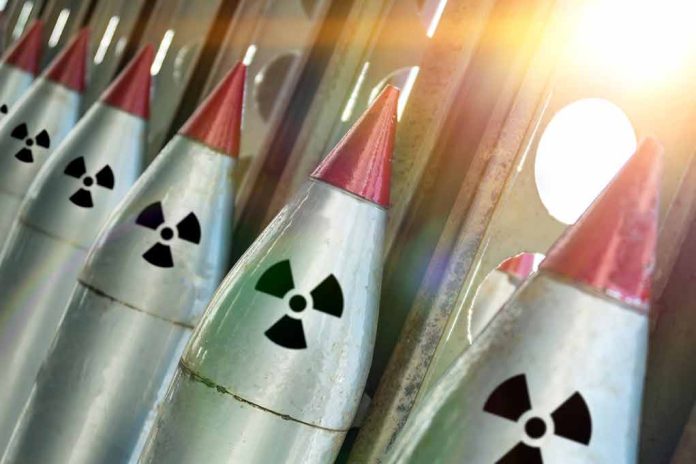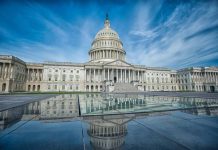
Considering the latest covert directive from President Biden, are American taxpayers prepared for the potential financial and political fallout?
At a Glance
- President Biden approved a highly classified nuclear strategic plan called “Nuclear Employment Guidance” in March 2024.
- The plan reorients America’s deterrent strategy to focus on China’s expanding nuclear arsenal.
- The Pentagon believes China’s nuclear stockpiles will rival the US and Russia’s within a decade.
- The new strategy prepares for potential coordinated nuclear challenges from China, Russia, and North Korea.
A Shrouded Directive
President Biden has taken a discreet step by instructing American defense agencies to amplify their readiness against potential nuclear threats from China, Russia, and North Korea. This covert directive, issued in March 2024 under the title “Nuclear Employment Guidance,” has sparked mixed reactions across the political spectrum and raised questions about its financial implications and the need for Congressional approval.
The reorientation of America’s deterrent strategy is aimed primarily at countering China’s rapidly expanding nuclear arsenal. According to the Pentagon, China’s nuclear stockpiles could soon rival those of the US and Russia within the next decade. This shifted focus is a direct reflection of apprehensions about the concerted nuclear threats posed by China, Russia, and North Korea.
An Administration Under Scrutiny
A veteran M.I.T. nuclear strategist voiced his concerns, stating, “The president recently issued updated nuclear-weapons employment guidance to account for multiple nuclear-armed adversaries.” He further emphasized the growing threat from China’s nuclear capabilities, saying the guidance also accounted for “the significant increase in the size and diversity” of China’s nuclear arsenal.
Republican leaders have questioned the fiscal prudence and legality of this covert directive, arguing that such substantial shifts in defense strategy warrant Congressional oversight and approval. Does Biden’s directive, kept under wraps for the most part, manage to bypass the requirement for a thorough legislative review by keeping the details classified? These maneuvers by the administration merit scrutiny as they maneuver around fiscal and constitutional checks.
President Biden has reportedly altered the U.S. strategic nuclear plans toward opposing China's burgeoning nuclear arsenal and preparing for possible nuclear coordination between China, Russia and North Korea. https://t.co/rJZhl2Vuj3
— The Washington Times (@WashTimes) August 21, 2024
Rising Nuclear Menace
China, Russia, and North Korea have significantly heightened their military collaborations, prompting Washington to reassess its nuclear strategies. Their joint patrols near Alaska and exercises in the South China Sea are stark reminders that these powers are not resting on their laurels. It seems we are toeing a line where the United States must either keep pace or be left vulnerable.
“Absent a change in nuclear strategy by China and Russia,” commented Pranay Vaddi, Senior Director of the National Security Council, “the US was prepared to shift from modernization of existing weapons to expanding its arsenal.” This hints at a future where the US could see an arms race rekindled, echoing the Cold War era.
A Costly Endeavor?
With Biden’s directive comes immense taxpayer expense for modernizing and potentially expanding America’s nuclear arsenal. Any significant budget amendment would ideally pass through Congressional scrutiny. However, by keeping this directive classified, the administration seems to hedge on a gray area to perhaps sidestep fiscal oversight.
The need for readiness against multiple nuclear threats is undeniable, but the question remains: at what cost to our democratic process? “It was an important moment,” remarked Richard N. Haass, a former senior State Department and National Security Council official. “We are dealing with a Russia that is radicalized; the idea that nukes wouldn’t be used in a conventional conflict is no longer a safe assumption.” Haass’ words underscore the real dangers while simultaneously highlighting the fine line we tread between necessary defense and unchecked executive power.






















